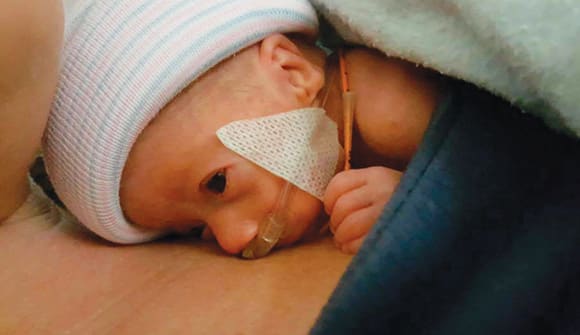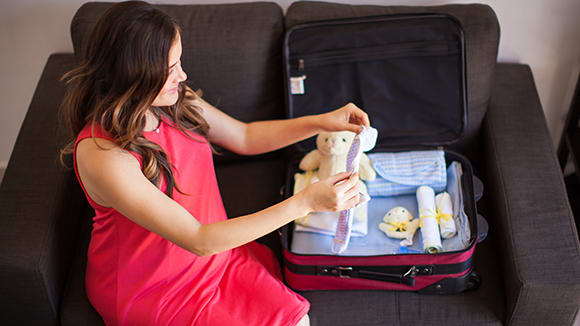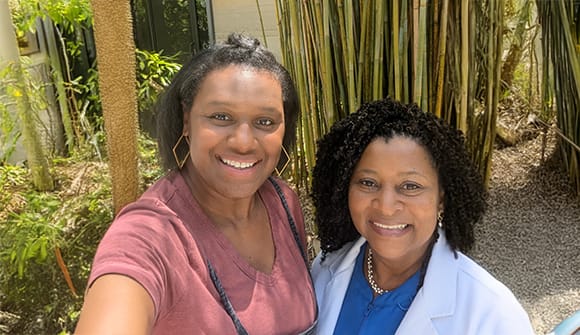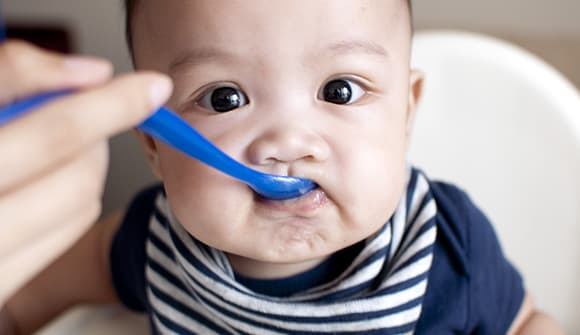Skin-to-skin good for baby
Cradling premature infants may improve their health.
Article Date:

One of the greatest feelings for a parent is to cradle their newborn baby and feel their heartbeat.
But when their baby is hooked up to machines and tubes in the Neonatal Intensive Care Unit (NICU) fighting to survive, the wait to hold their baby can be frustrating.
There is a way to still have that connection.
Skin-to-skin care, also known as “kangaroo care,” allows parents to hold their premature babies close to their bare chest. This practice provides benefits for the baby and their parents. Starting originally in the late 70s in Bogota, Colombia, where the death rate for premature infants was 70%, babies receiving kangaroo care not only survived but thrived.
“Parents have the opportunity to provide this very important care. It’s calming and allows for parent-infant bonding,” said Sara Gravelle, NICU care manager for Wolfson Children’s Hospital. “We are in a very high-tech environment. This activity of holding your baby skin-to-skin can be as important as the medical interventions we provide.”
Kangaroo care can start as early as 30 weeks in newborns who have stable vital signs and temperatures with few episodes of apnea, a serious sleep disorder resulting in an interruption in breathing.
Heat and the moisture from feeling direct skin-to-skin contact and not having clothing in between allow for good conduction of heat. A warm blanket and hat are also placed over the baby.
Numerous studies show physiologic and developmental benefits for the infant, including:
- Regulating temperature
- Calming
- Improving sleep patterns
- Improving growth and development
- Providing parent-child bonding
- Increasing milk supply in the mother
- Promoting early initiation of breastfeeding
- Reducing the mother’s anxiety and even depression
A Harvard University study analyzing more than 100 previous studies found skin-to-skin care reduced mortality by 36 percent and major infections by 47 percent.
Parents also feel more attached to their infants and feel an increase in their parental role.
“It’s not uncommon for parents to feel a little detached since they can’t do a lot of hands-on care when their baby is in the NICU. This is a first step to really knowing their baby, feeling their heartbeat and feeling their baby relax in their care, which is so critical to the success of going home,” Gravelle added.
Even stable babies on ventilators can have this opportunity with help from the care team.
“It’s really meaningful for both staff and families,” Gravelle said. “It’s hard because parents have delivered their baby and then must give up control. This is a critical time when parents can hold their baby and do something we can’t do for their baby. There is a closeness and comfort for the parents and the baby.”
For skin-to-skin care to be successful, parents should shower before their visit, avoid perfumes and strongly scented deodorant, refrain from smoking since infants are sensitive to secondhand smoke, and wear a button-down shirt or stretchy top similar to a tube top.
At the Wolfson Children’s Hospital NICUs, parents can sit with their baby at least 60 minutes daily.
May 15, 2019, is International Kangaroo Care Day, a global event raising awareness of skin-to-skin contact. Wolfson Children’s multidisciplinary team will celebrate by distributing educational materials and pins to encourage parents to ask and get involved in this type of care.



